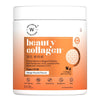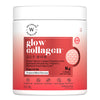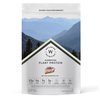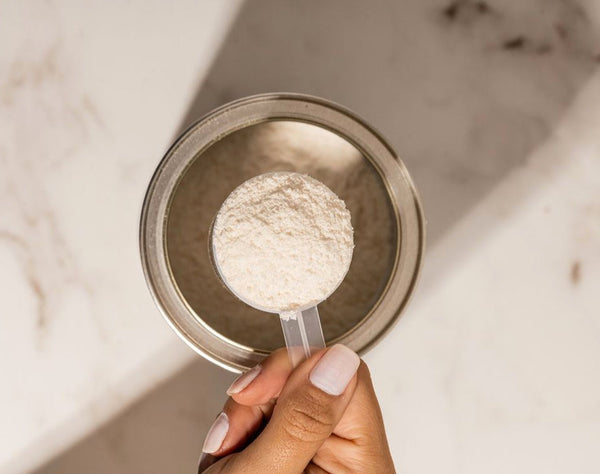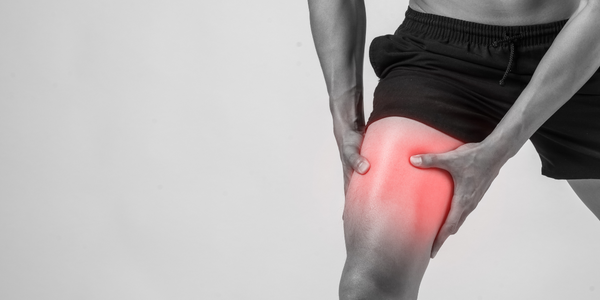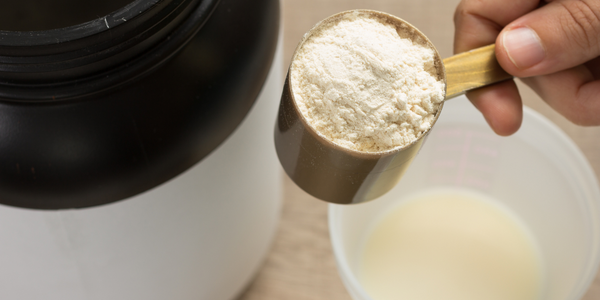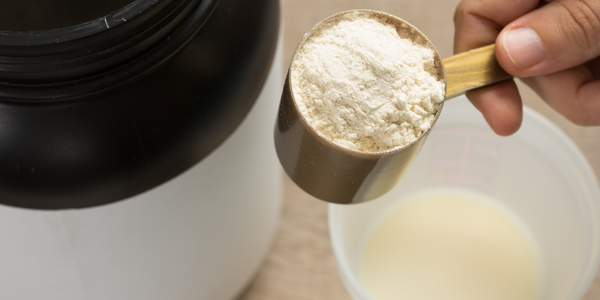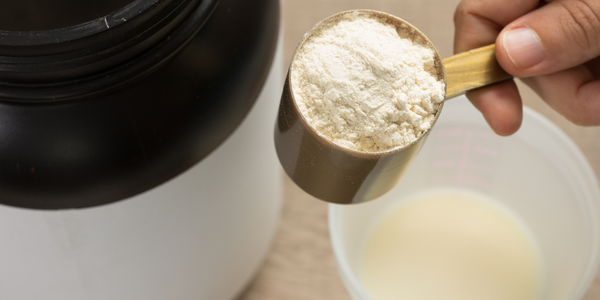Pain and injury are unavoidable in sports. However, incorporating daily collagen supplements into a sportsperson's routine can help reduce the severity of discomfort, improve performance, and expedite the healing process. Yes, you read it right—collagen is beneficial for athletes too. When you hear the term "Marine Collagen," it's natural for the word "beauty" to come to mind. Collagen has long been a key ingredient in beauty products marketed for promoting skin, nail, and hair health. However, its benefits extend beyond just those areas. Marine collagen supplements also play a critical role in bone and muscle health, thereby contributing to enhanced sports performance and faster recovery after sporting events.
Collagen: The Vital Connection
Collagen serves as the vital link connecting your bones, muscles, hair, nails, skin, and joints through its fibrous protein structure. Remarkably, collagen makes up approximately one-third of your total body protein. In fact, collagen is the most abundant protein within your body, naturally produced but gradually declining with age and due to certain unhealthy lifestyle choices. This is where collagen supplements come into play, serving as a valuable anti-aging component.
The Importance of Collagen in Sports Nutrition
Collagen has an essential role to play in sports nutrition as it is a vital component of tendons, bones, and extracellular matrix. It helps in building skeletal muscle, strengthening the tendons, and may assist in muscle recovery and maintenance of muscle mass post-sports events.
1. Collagen for Tendons & Joint Health-
Collagen constitutes about 60-85% of the dry weight of your tendons. It is the cross-linking of this collagen that imparts tendon structure and protects it from high-impact stress, preventing the potential risk of injury in sports. Intense physical activities put immense stress on joints, often leading to discomfort and reduced performance. Marine collagen supplements have been found to promote joint health by improving its structural integrity. Its ability to stimulate the production of collagen and proteoglycans in cartilage helps maintain joint flexibility and reduce the risk of injuries.
2. Collagen for Muscle Growth-
As we age, both internal collagen production and testosterone hormone levels tend to decline, leading to a decrease in muscle mass. However, studies have shown that collagen supplementation, combined with resistance training, can help increase muscle mass. Additionally, collagen supplementation has been found to reduce muscle soreness by providing structural support to the muscles. This, in turn, helps decrease the recovery time between training sessions, allowing for more efficient muscle growth and improved overall performance.
3. Collagen for Recovery/Repair-
Collagen may be effective in pain reduction by increasing extracellular matrix content that acts as a cushion between two bones. Among tendon injuries, collagen synthesis may speed up the healing process as it provides more building blocks needed for healing. This accelerates the growth of new blood vessels and encourages the development of collagen in the damaged tissues which can lead to faster recovery and a quicker return to training or competition.
Studies show that daily intake of 5g of collagen peptide can lead to significant reduction in pain in athletes with functional joint pain during a sport. This supplementation is also seen to reduce the need for additional therapies such as ice application and physiotherapy.
4. Collagen for Improving Performance-
Collagen is rich in arginine and glycine, which are precursors for the synthesis of creatine. Creatine is well-known for its ability to enhance sports performance. Interestingly, studies have shown that collagen supplements can also improve athletic performance by reducing joint pain in athletes with knee issues during sports activities. Furthermore, another study has demonstrated that collagen supplementation, when combined with concurrent training, can enhance muscular endurance and overall performance. These findings highlight the potential benefits of collagen for optimizing athletic performance and supporting athletes in achieving their goals.
Why is Marine Collagen Better Than Other Types of Collagens?
Marine collagen supplements hold certain advantages over other types of collagens when it comes to sports nutrition. Here are some reasons why marine collagen is considered superior:
1. Bioavailability and Absorption:
Marine collagen has excellent bioavailability, meaning it is easily absorbed and utilized by the body. Its smaller peptide size allows for efficient absorption, ensuring that the beneficial components are readily available for the body to use during exercise and recovery.
2. Amino Acid Profile:
It contains high levels of essential amino acids like glycine, proline, and hydroxyproline, which play a crucial role in collagen synthesis, joint health, and connective tissue repair. After intense workouts or competitions, proper muscle recovery is vital for athletes. Marine collagen supplies essential amino acids required for muscle repair and growth. It supports the formation of new muscle tissue, enhances protein synthesis, and aids in reducing muscle damage and soreness.
3. Allergen-Friendly:
Marine collagen is often considered a suitable alternative for individuals with dietary restrictions or specific allergies. It is free from common allergens like dairy, soy, gluten, and eggs, making it a versatile choice for a wide range of individuals seeking collagen supplementation.
Getting your Daily Dose of Collagen through Supplements
Collagen can be sourced from three main sources: fish (marine), cows (bovine), or pigs (porcine). However, marine collagen is widely considered the best option due to several factors, including its cleaner source of origin, easier digestibility, and effectiveness in delivering results. In the supplement market, collagen is available in various forms, with powdered marine collagen being the obvious winner. Most powdered marine collagen is colorless, tasteless, and dissolves effortlessly in any liquid since it is hydrolyzed. This makes it convenient to add to various beverages like water, fruit juices, breakfast smoothies, yogurt, or even oatmeal. Some of the best collagen supplements are derived from wild-caught Korean deep-sea fish, which are believed to contain more nutrients and are generally free from toxins, antibiotics, and GMO feed.
Wrapping Up
A lot has been heard and said about collagen for skin and collagen for hair or nails, but very few are aware of its role in sports nutrition. Whether you are a gymnast, an athlete, a gym goer, or a fitness fanatic, taking a supplement containing marine collagen can not only help you perform better but will also aid in your recuperation and repair after a sporting event.
References
https://www.ncbi.nlm.nih.gov/pmc/articles/PMC8521576/
https://www.researchgate.net/publication/320913150_Update_on_Collagen_Peptide_in_Sports_Nutrition
https://www.hsph.harvard.edu/nutritionsource/collagen/
https://irispublishers.com/gjnfs/pdf/GJNFS.MS.ID.000578.pdf








